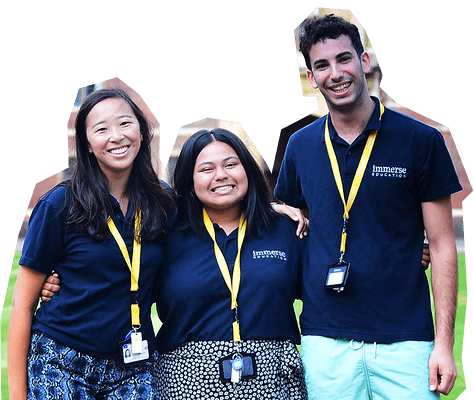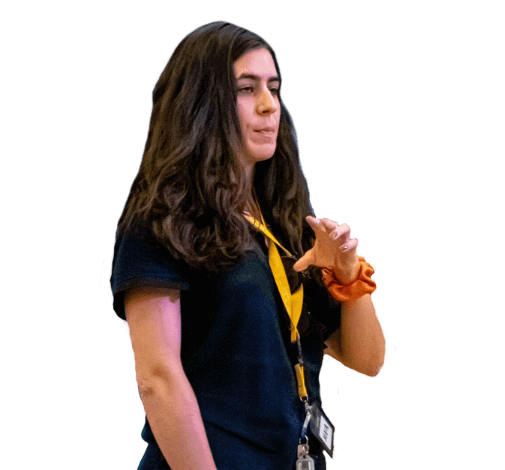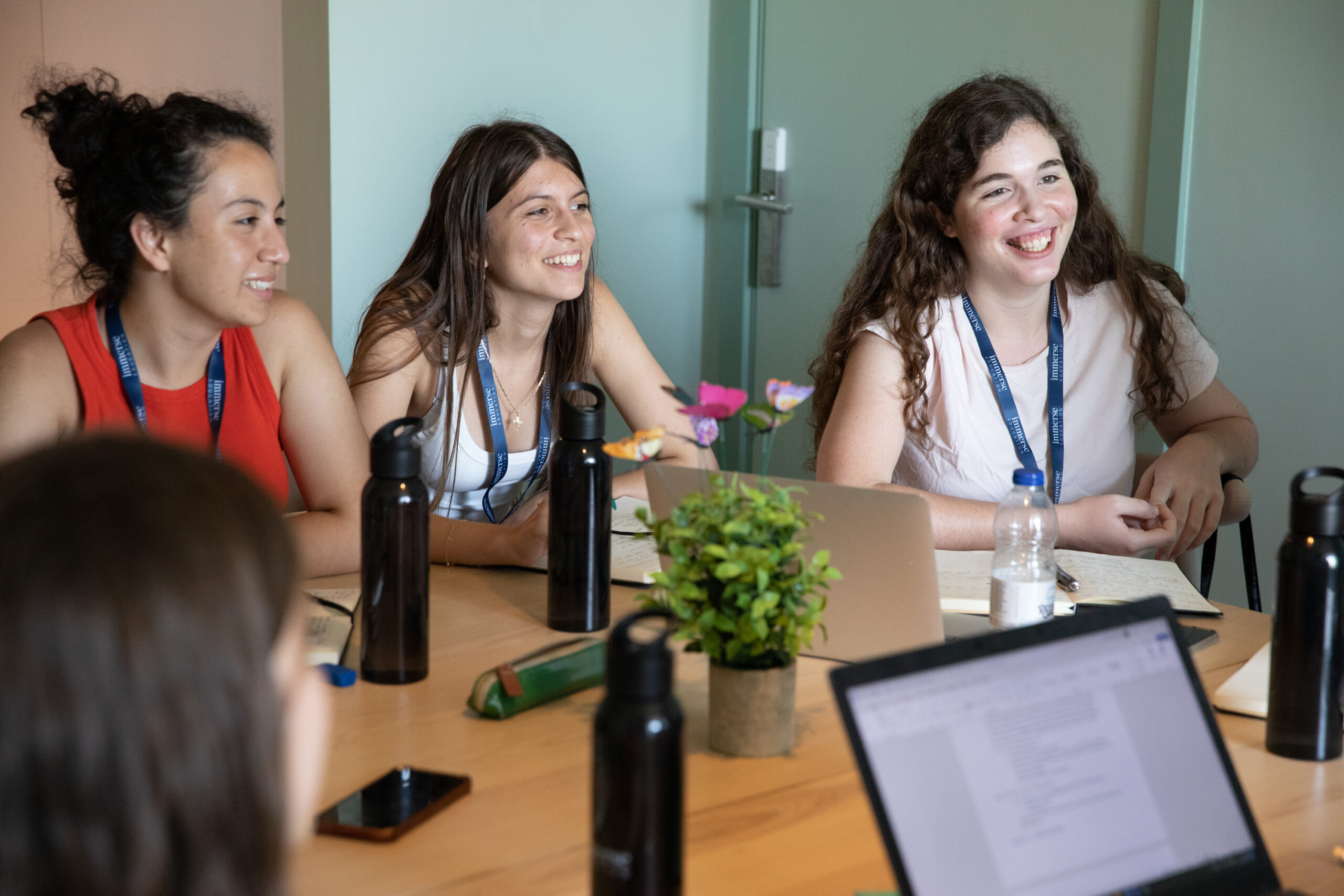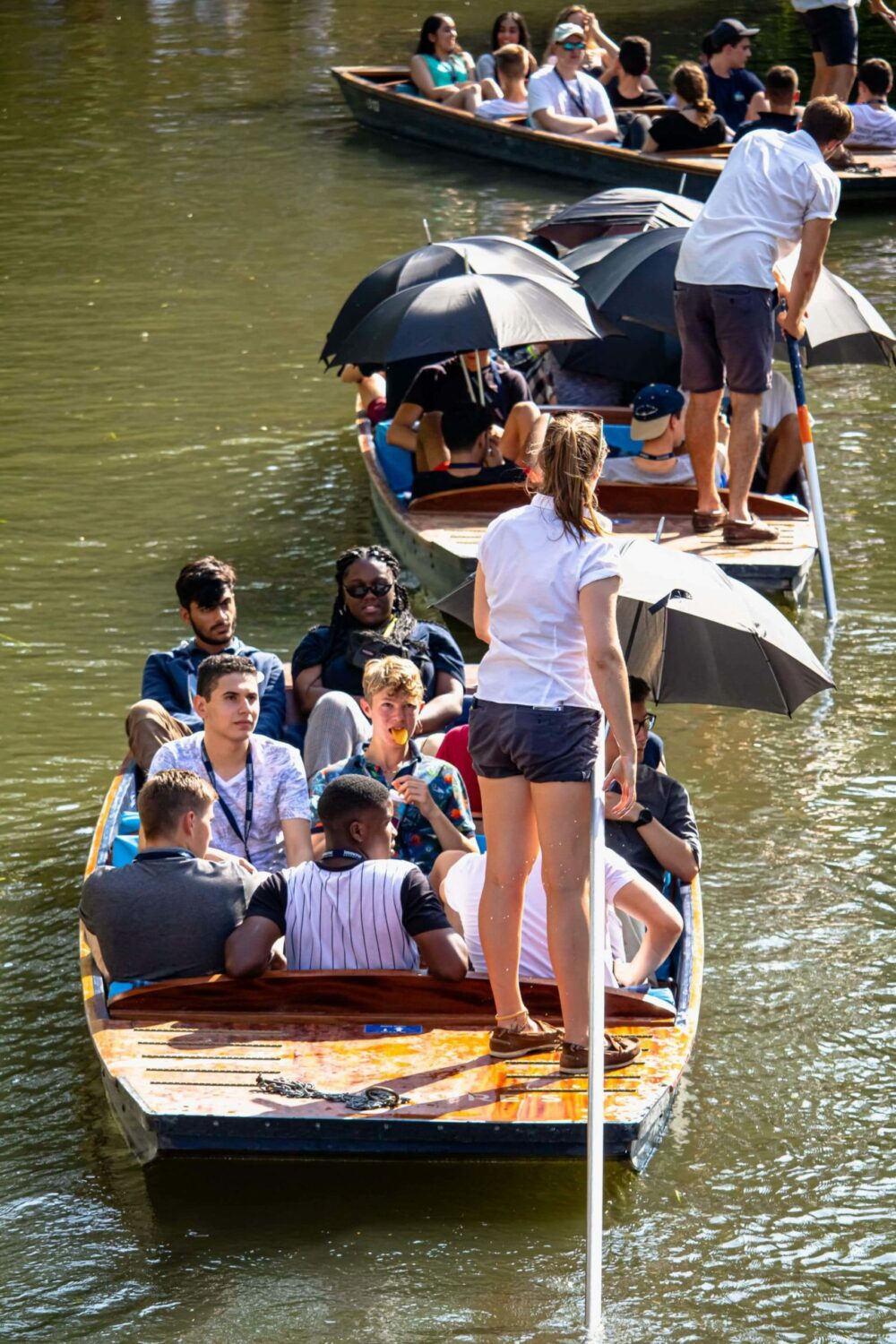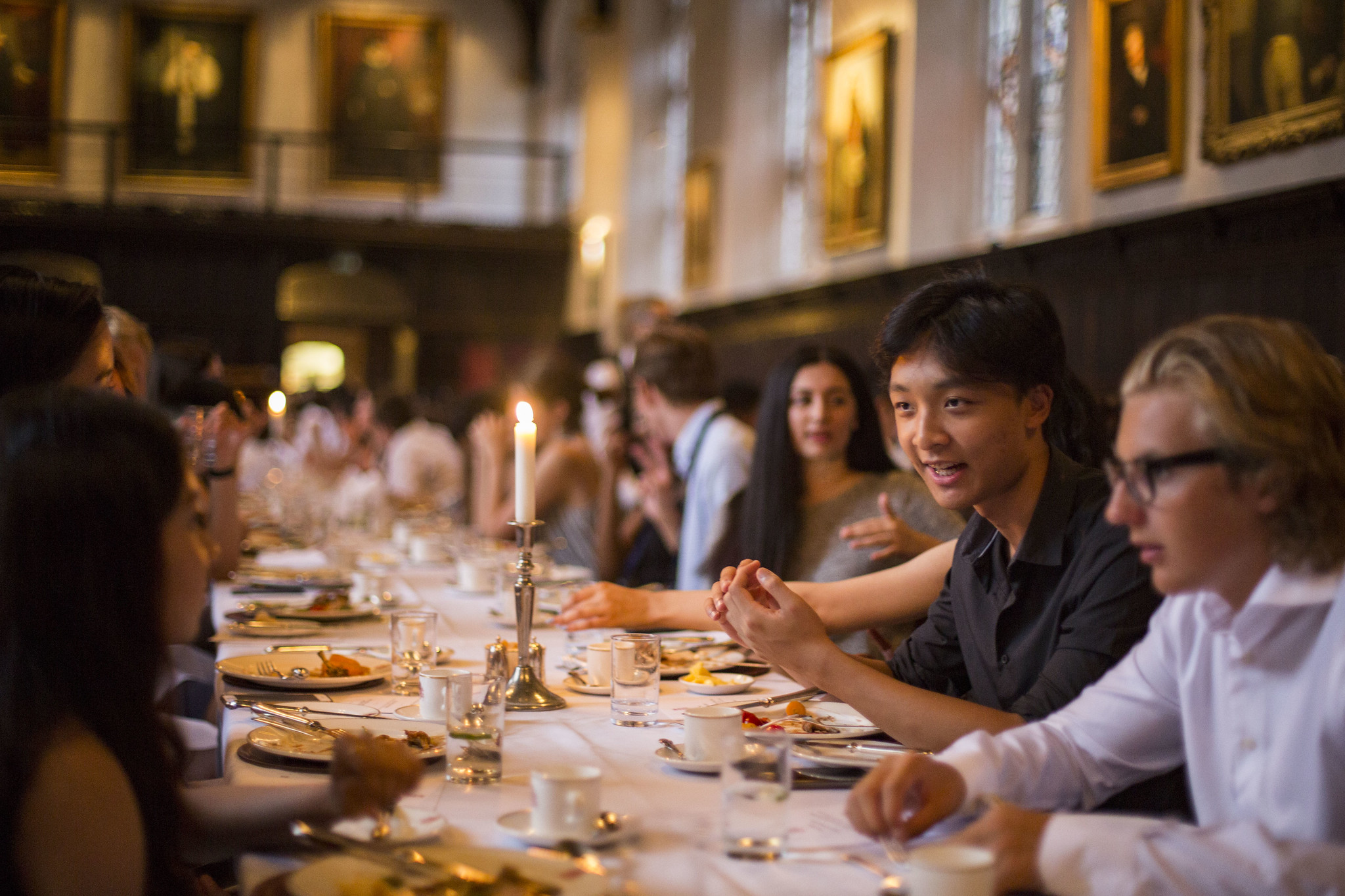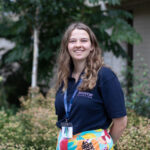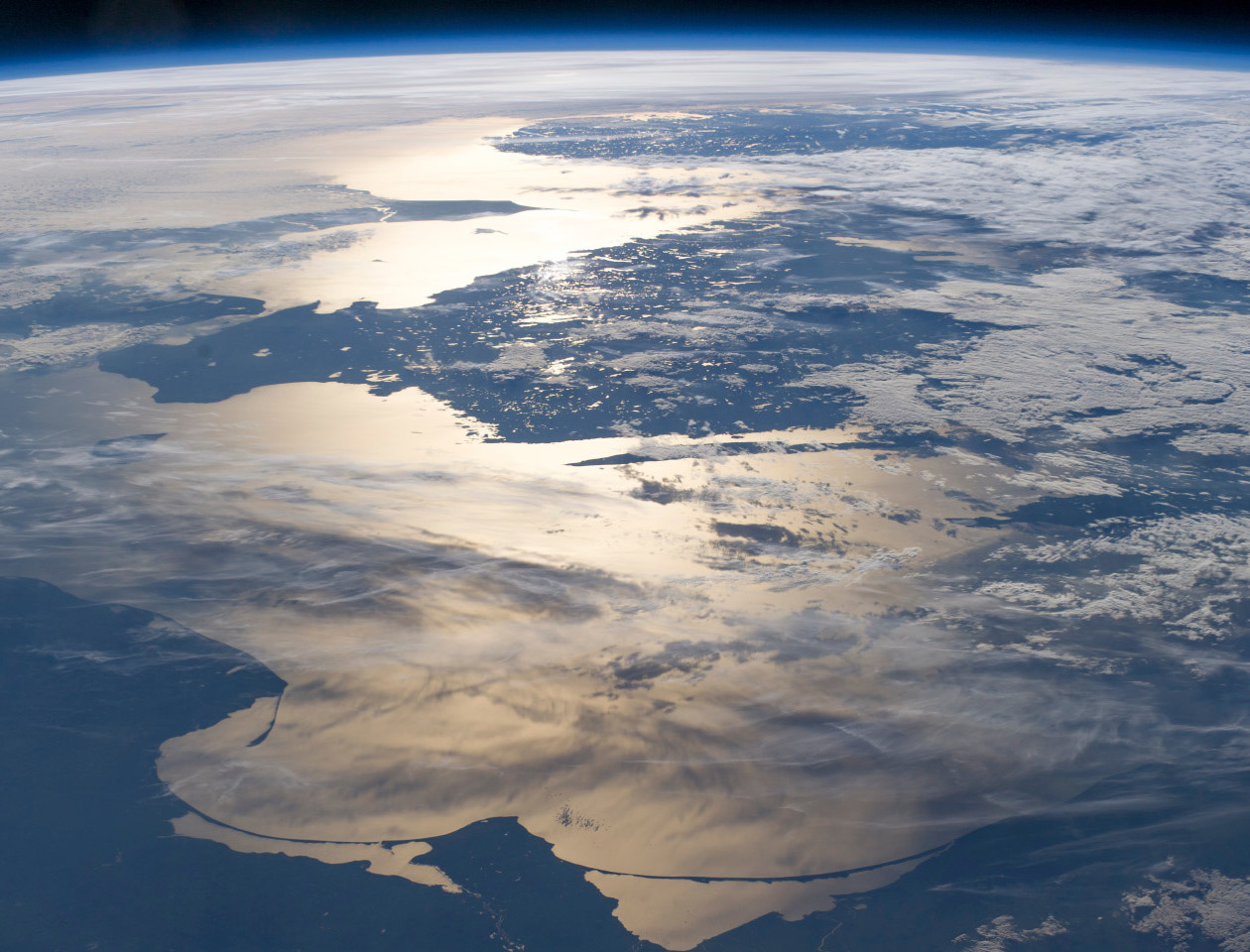Cambridge Earth Sciences Summer School (Ages 13-15)
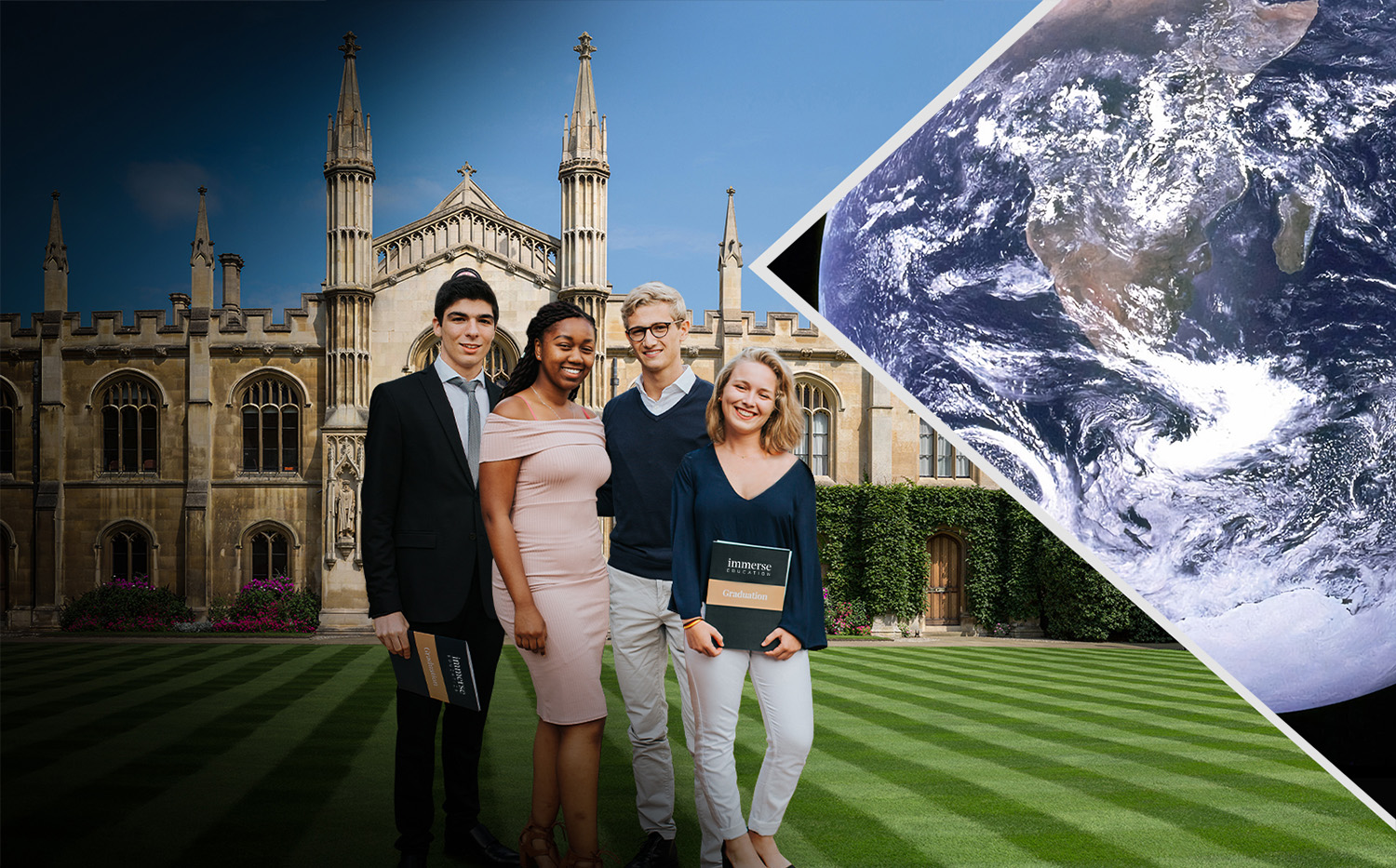
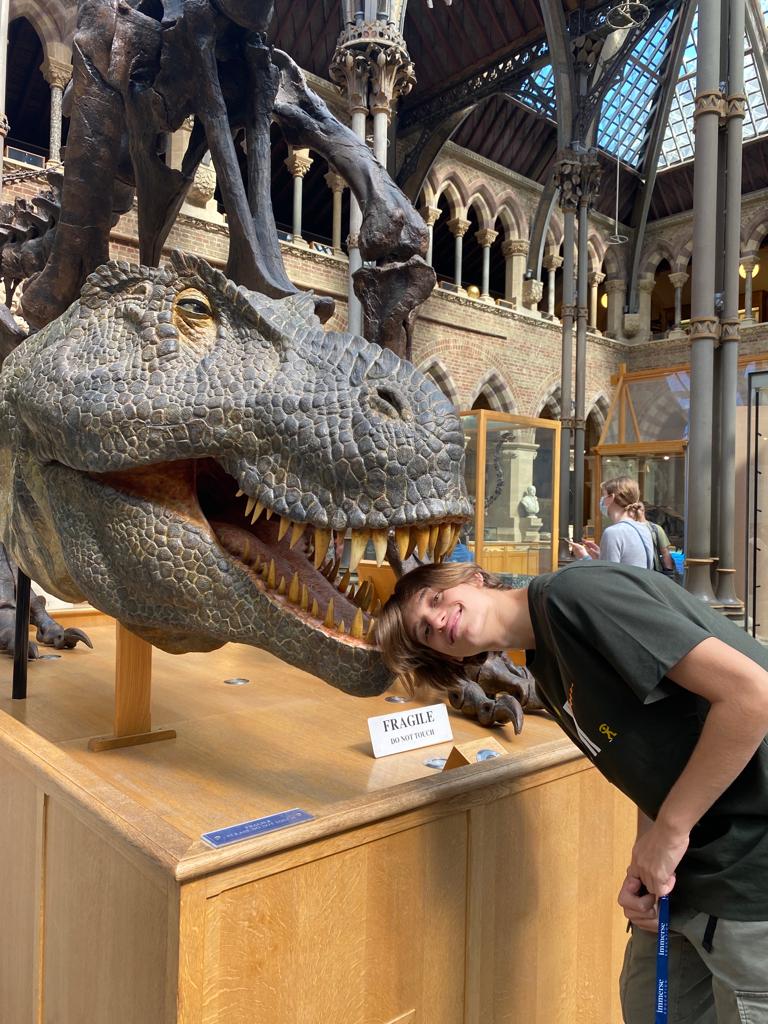
Earth Sciences
Earth sciences cover a range of topics from human activity and the environment to the formation of rocks and minerals. The field is concerned with examining earth at the molecular, macro and micro scale, from the chemistry of a single leaf to the processes that shape the world’s continents. In this subject, we combine physics, chemistry and biology with geology, geography and palaeontology to answer essential questions about the origin, development, and future of the Earth. Forming an understanding of how these key areas connect to create the complexity of Earth’s systems is what makes the subject fascinating to study.
Learn directly from expert academics from world-class universities
You will explore novel concepts and share ideas in small groups of like-minded and ambitious peers from around the world. In small class sizes averaging 7 students, you will be guided by expert tutors who have honed their expertise through teaching undergraduate students at world-class universities, including the universities of Cambridge, Oxford, and Harvard.
Our rigorous vetting process guarantees that all participants are taught by engaging and supportive educators who are, most of all, enthusiastic about sharing their expertise to ensure our summer school teaching is of the highest quality. Immerse™ is an unrivalled academic experience.
-
Average class size of 7
Maximum class size of 10 students -
1:1 tutorials
Supportive, challenging and engaging -
Academic workshops
Develop a practical understanding of your subject -
World-class tutors
Academics from Oxford and Cambridge
Boost your confidence and develop key attributes in academic skills workshops
Our workshops are geared towards unlocking participants’ potential, giving them the tools to prepare for the next steps of their education and future goals. Build upon existing study skills to support future university-level learning.
These workshops explore a diverse and enriching range of topics – past examples have ranged from ‘Productivity tips’ to ’21st Century Technology Skills’. We’re sure that you’ll learn something completely new. Unlike traditional schools, Immerse allows you to learn beyond the traditional curriculum.
This programme is designed for students with at least an upper-intermediate level of English (B2). If you are unsure if you meet this requirement, please contact advisor@immerse.education.
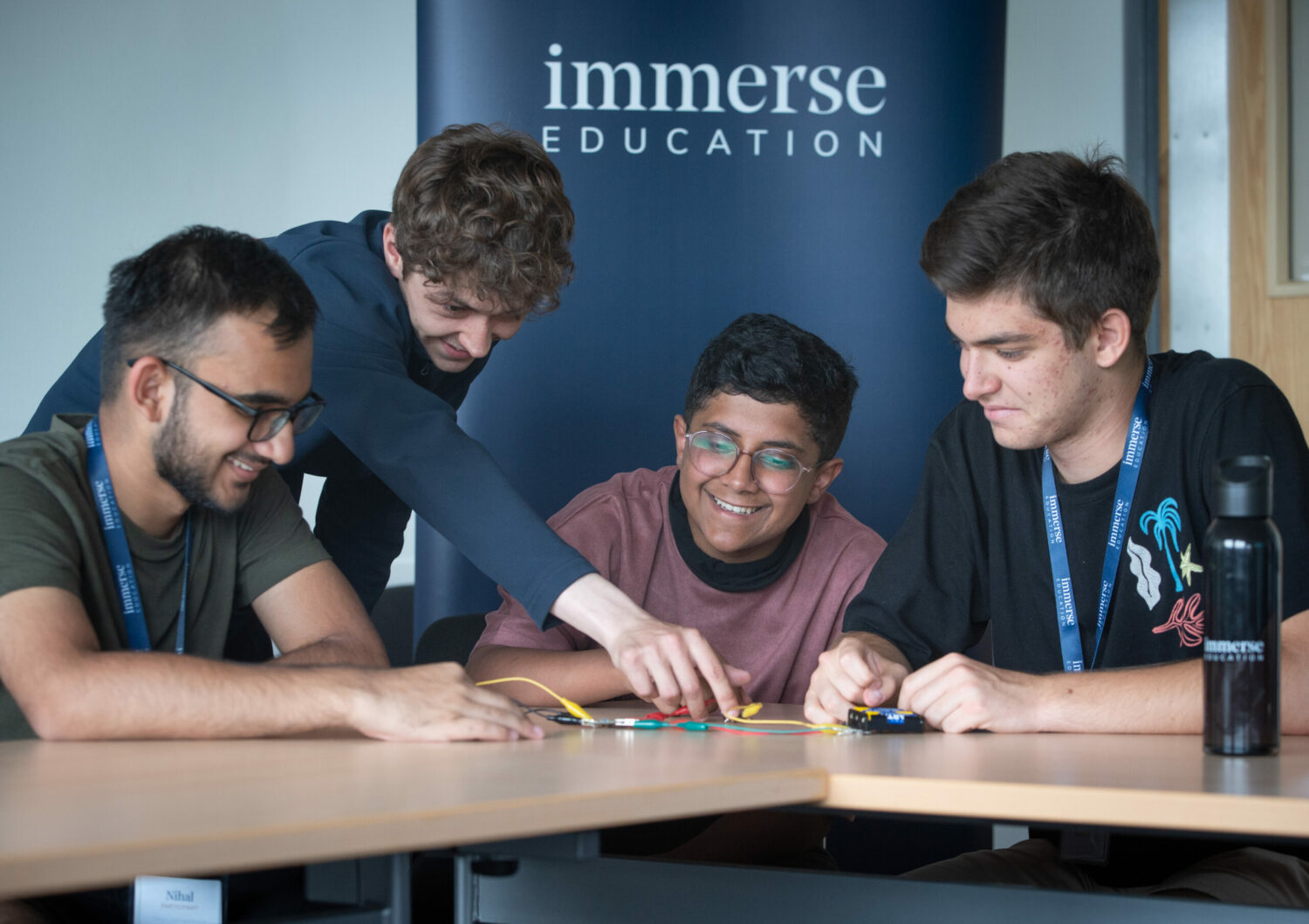
-
Certificate & detailed participant evaluation
All participants receive an individual report from their tutor -
Personal project or Creative portfolio
Develop a personal project or a creative portfolio to present at the end of the course -
Experience Oxbridge life
Live and learn like an Oxbridge undergraduate -
Enhance key academic skills
Interview skills, academic writing and presentation
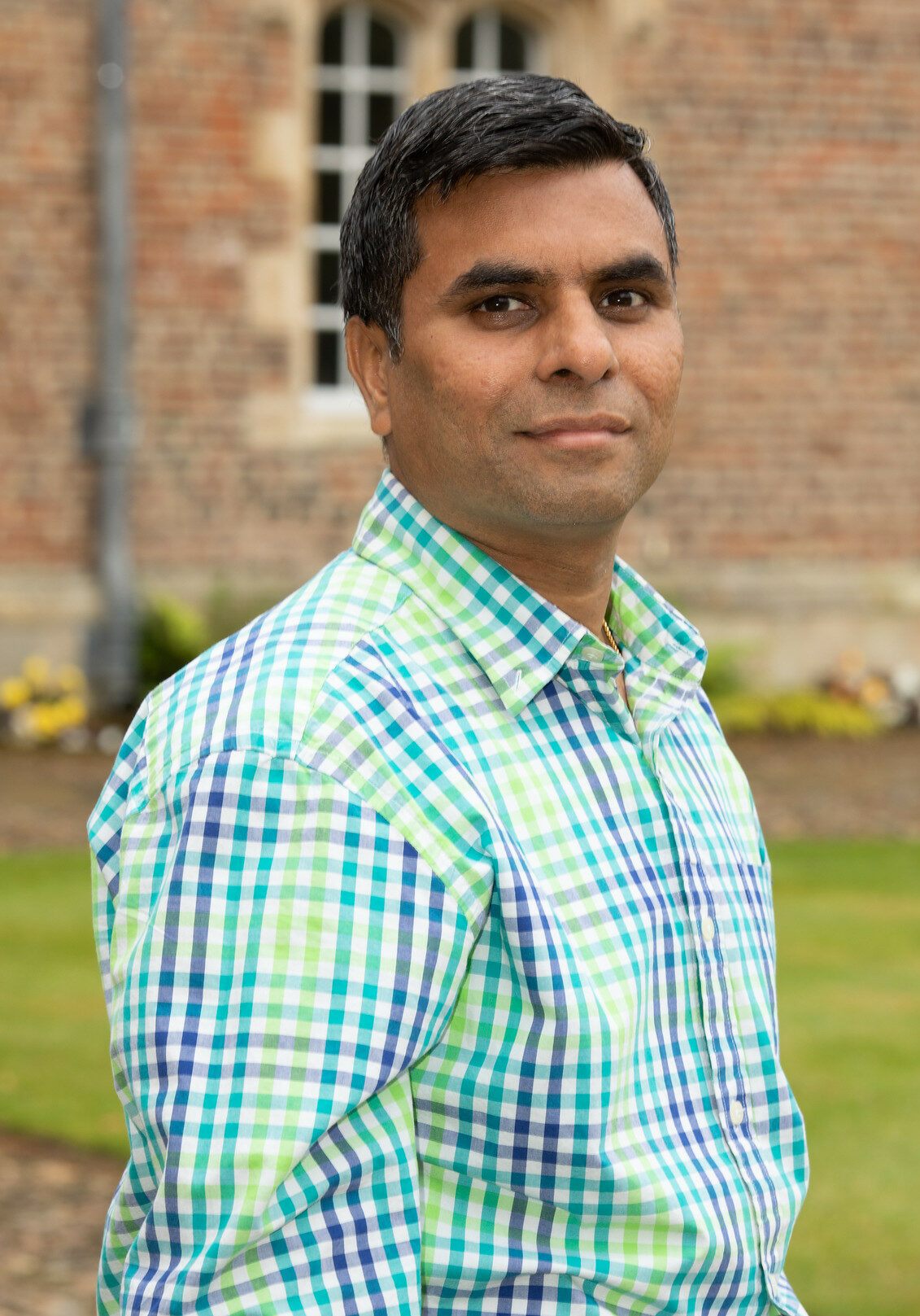
Example tutor:
Dr Saroj Velamakanni
Guest speakers from previous summers
Dr Lynda Shaw
Abi Oyepitan
Dr Nigel Warburton
The Immerse programme has been one of the best experiences I’ve ever had in my whole life, to be honest! In psychology I’ve studied behavioural psychology, cognitive psychology, and we had a whole day to study gender and sexuality because it’s my tutor’s specialty.
For my personal project, I decided to do research about the correlation between the time adolescents spend on their phone and their levels of concentration. We learned about the aspects of the experiment that we could improve upon, such as the diversity of people asked, and the variation of demographics.
I really enjoyed the London and Oxford excursions, but I’d say the Oxford one was my favourite, because it looked like home for me – it reminds me of Brazil for some reason! I loved it, and London was also amazing.
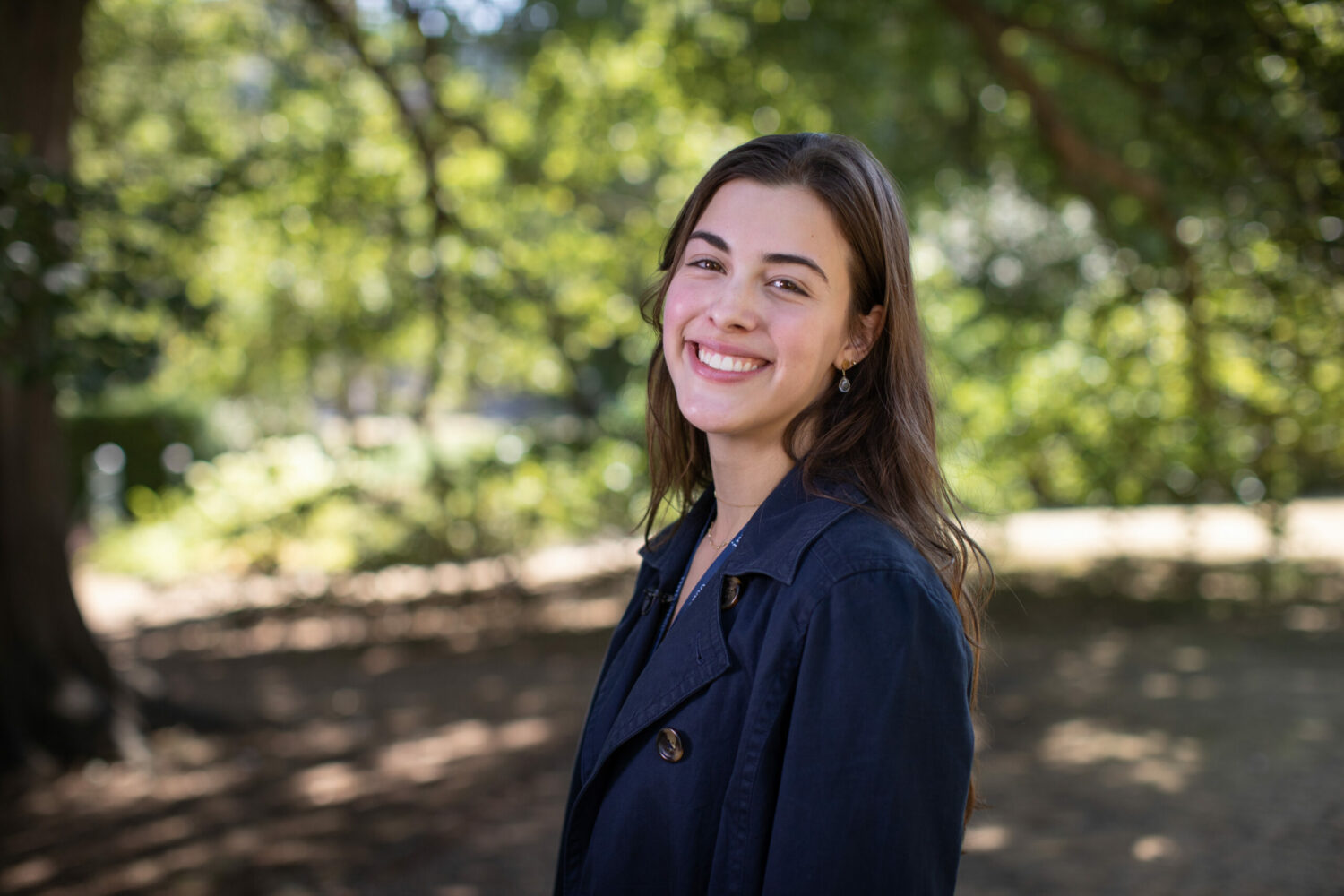
Work hard, play hard.
Action-packed social programme
Outside of lessons, we are proud to offer a busy and diverse social programme to help you get the most out of your time in Cambridge. This includes activities such as punting on the River Cam, zorb football and a murder mystery night in the college.
There are also two excursions during the programme, one day trip to visit Oxford and its constituent colleges, as well as an optional day out in London, seeing the city’s most famous landmarks as well as some free time for shopping. Those who choose not to travel to London are invited to afternoon tea in Cambridge.
Activities and excursions are run by our team of friendly mentors – whose main job is to maximise your enjoyment.
Work hard, play hard.
A unique social programme.
Experience traditional 'Formal Hall'
Formal Hall is a traditional weekly meal that takes place in every college. This is an opportunity for students to dress up, dine by candlelight in the magical surroundings of a Cambridge college’s dining hall.
As an Immerse student, you will experience formal dinner three times during your stay – once per week in Cambridge, as well as in an Oxford University college on the excursion day.
Formal hall is truly a memorable occasion, so remember to bring some smart clothes!
A unique social programme.
Live and study in a
Cambridge University College
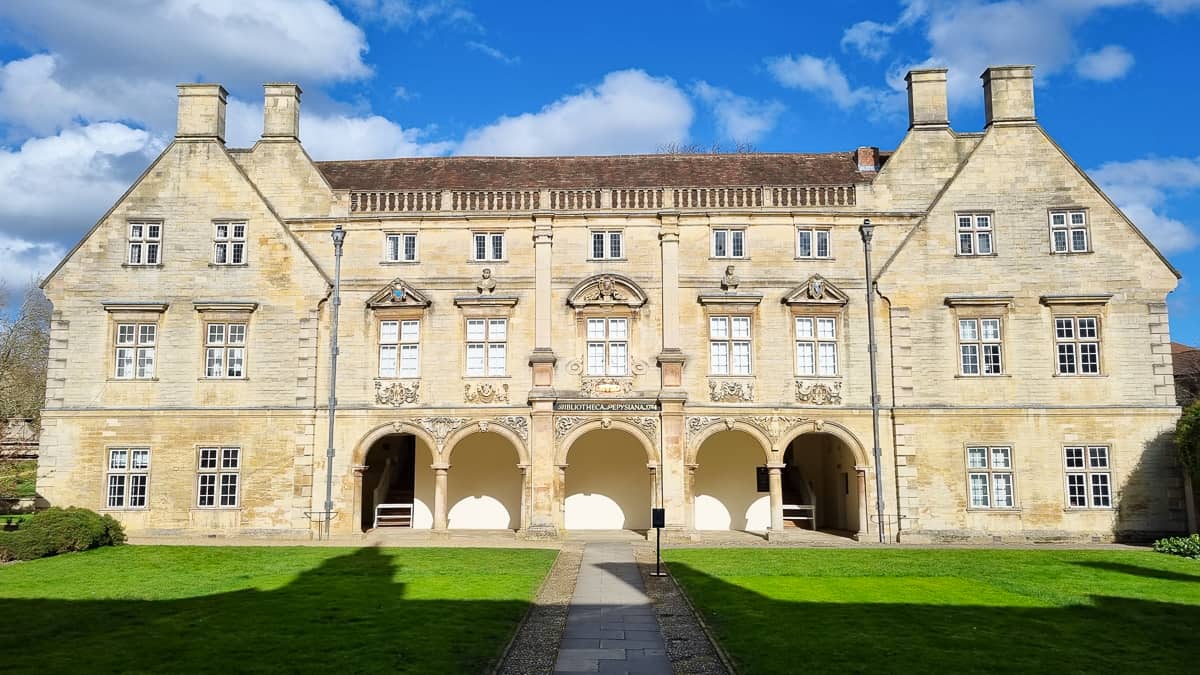
Experience life as a Cambridge University undergraduate
All participants will be allocated to a college a few weeks before arriving, based on their dates and subject choice.
If you would like to stay in the same location as a friend/sibling – please let us know and we will do our best to arrange this, where possible.
Males and females have separate accommodation in every college, and there is wi-fi available throughout.
For more information, please visit this page.
Student Welfare & Safety
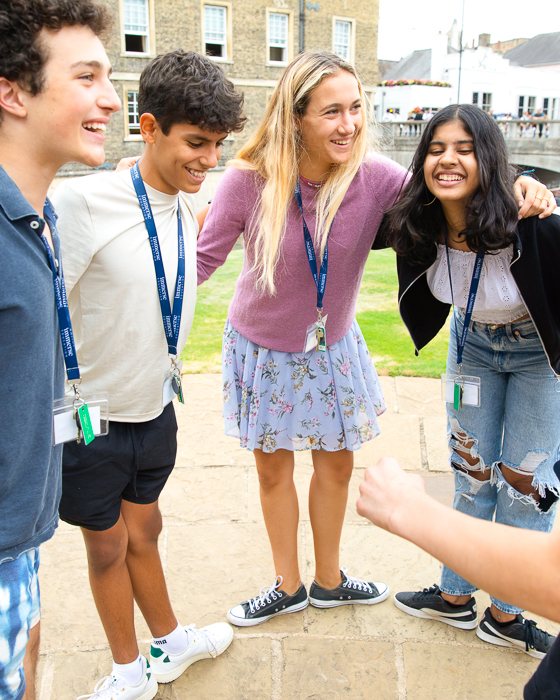
An accredited provider of academic short courses
Immerse Education is accredited by the British Accreditation Council (BAC), the leading mark of educational quality for the academic sector. Our accreditation with the BAC sends a positive and clear message to students and partners that they are studying with a trusted and reliable provider who has met a series of globally recognised quality assurance standards, both in terms of academic provision and student welfare.
The safety and well-being of our participants is our number one priority, and all staff undergo enhanced background checks and receive thorough safeguarding training before interacting with any students.
For more information, please visit our Pastoral Information page.
Meet some of our mentors and
college managers
-
FreyaFreya is a third year Medical student at St John's College, Oxford University. She is a keen runner and cyclist and has recently enjoyed taking up college rowing.
-
JemMentor
-
Lily-MaeMentor
-
PoppyMentor
-
SophieMentor
Introduction to Earth Science
-
Module 1 - Planet Earth
In this module, you will take a look at our planet from an Earth Science perspective, including the principal chemical, physical and biological processes operating on the planet today as well as throughout Earth’s history. Some of the topics we may explore include nucleosynthesis, solar system formation, moon formation, terrestrial planets, meteorites and more, in order to gain a thorough understanding of the systems that make up our universe. -
Module 2 - Fundamentals of Geology
This module examines the fundamentals of geology, a core aspect of any Earth science programme. You will have the opportunity to survey the important mineral groups and examine how they naturally occur, exploring the bonding forces in crystals, the packing of individual atoms and molecules within mineral structures, their interaction with light and fundamentals of petrographic microscopy, and the thermodynamic controls on mineral composition and structure. -
Module 3 - Structural Geology
In this module, you will apply what you have learned in the fundamentals of geology to practical work, dealing with the techniques of structural geology, and the interpretation of geological maps in structurally complex terrain. This module will prepare you for your personal independent mapping project where you will showcase what you have learned in a solidified piece of work. -
Module 4 - Sedimentary Processes
Sediment is a naturally occurring material that is broken down by processes of weathering and erosion, and is subsequently transported by the action of wind, water, or ice or by the force of gravity acting on the particles. In Earth Sciences, the sedimentary processes are concerned with the physical, chemical, and biological processes that generate sediments at the Earth’s surface. In this module, you will learn the basic principles of common sedimentary processes looked at in this field, building on knowledge gained in previous units of study. -
Module 5 - Biology & Oceanography
In this unit, you will explore some of the basic principles of biological oceanography, examining the relationship between the physicochemical properties of the marine environment and planktonic communities, such as phytoplankton, bacteria, and zooplankton. Likewise, you will take a look at the use of in situ and satellite observations to study the spatial and temporal patterns in the distribution and abundance of marine organisms. As a class, we will discuss the role of ocean biota in global biogeochemical cycles based on our built understanding
Download prospectus
Download prospectus
-
4th August – 17th August 2024
-
21st July – 3rd August 2024
-
7th – 20th July 2024
Frequently Asked Questions
What is Earth Sciences?
Earth Sciences is a combination of physics, chemistry, biology and mathematics.
The three core foundations of Earth Science is geology, geochemistry and geomicrobiology. Together these subfields provide an understanding of the Earth’s systems. Geology examines the structure, evolution and dynamics of the planet and its natural mineral and energy resources. Geochemistry applies chemical principles to the field, considering the composition of things like rocks, fluids, gases and biology, that exchange matter and energy over a range of time scales. Geomicrobiology concerns the role of microbes on geological and geochemical processes and the effects of minerals and metals on microbial growth, activity and survival. Throughout this module, you will form an understanding of these three key subfields of Earth Sciences.
Why is it important to study Earth Sciences?
This programme will help you understand the context in which you live and how you can navigate the space and time you’re in. By the end of this programme, you will have established both practical skills as well as an in-depth understanding of what Earth Science is and its application in the real world.
Earth Science helps humans understand the structure and chemical composition of the earth, which helps us to utilize our resources to sustain and advance the quality of life on earth.
How about in terms of salary?
Within an Earth Science degree, you’ll be studying the physical structure of the earth – from the formation to the processes involved and how it’s changing over time.
Typical salaries at a senior level range from £40,000 to £75,000 per year.
An Earth Science degree sets you up for a career within the energy, environmental or engineering sectors and will open your opportunities up in a wide range of different specialisms.
Job titles within Earth Science vary depending on the specialist area of work and include:
- Geophysicist
- Geologist
- Geochemist
- Hydrogeologist
- Minerals engineer
Immerse Education offers both online and residential courses for Earth Sciences. The residential course is located in the city of Cambridge, UK, and is held in the summer. If you’re wondering where you stay, then it’s in the prestigious colleges of Cambridge University.
You don’t need prior skills, experience, or learning to sign up for Earth Sciences. But having a genuine interest in Earth Sciences helps. Additionally, your Earth Sciences summer school tutor will provide you with pre-course activities to undertake before the summer course starts. This ensures you have the knowledge needed to get the most out of your two-week stay.
Foundations of Earth Science
The three core foundations of Earth Science are geology, geochemistry and geomicrobiology. Together these subfields provide an understanding of the Earth’s systems. Throughout this module, you will form an understanding of these three key subfields of Earth Sciences.
Planet Earth
In this module, you will take a look at our planet from an Earth Science perspective, including the principal chemical, physical and biological processes operating on the planet today as well as throughout Earth’s history.
Fundamentals of Geology (Part 1)
This module examines the fundamentals of geology, a core aspect of any Earth science programme. You will have the opportunity to survey the important mineral groups and examine how they naturally occur, exploring the bonding forces in crystals, the packing of individual atoms and molecules within mineral structures, their interaction with light and fundamentals of petrographic microscopy, and the thermodynamic controls on mineral composition and structure.
Fundamentals of Geology (Part 2)
In this module, our attention will be turned to understanding and interpreting geological maps and learning how to visualise geological structures in three dimensions.
Structural Geology
This module will prepare you for your personal independent mapping project where you will showcase what you have learned in a solidified piece of work.
Sedimentary Processes
Sediment is a naturally occurring material that is broken down by processes of weathering and erosion, and is subsequently transported by the action of wind, water, or ice or by the force of gravity acting on the particles.
Biology & Oceanography
You will explore some of the basic principles of biological oceanography, examining the relationship between the physicochemical properties of the marine environment and planktonic communities, such as phytoplankton, bacteria, and zooplankton.
Motivated students ages 13-18 are best suited for Earth Science courses. Do you want to take an Earth Science degree or other related subjects at the university? Then signing up will give you a distinct advantage compared to your competitors.
If you want to learn from talented tutors at the University of Cambridge, you’ll enjoy taking our Earth Sciences course!


